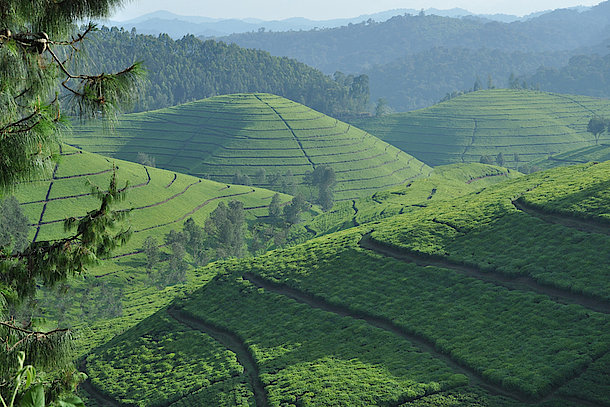
Rwanda being one of the African countries most affected by the impact of climate change, a total of 39.5 million euros of the financing commitment will be allocated to Rwandan-GermanClimate and Development Partnership launched on 1 March 2022. Commitments include funding of key climate change mitigation and adaptation projects by the Rwandan Green Fund (FONERWA), but also important activities to support sustainable urbanisation – such as making coastal cities along lake Kivu climate-resilient, where the impact of climate change is particularly evident with flooding and landslides becoming increasingly common. Activities to improve waste management and circular economy were also agreed upon. The partnership is embedded within global climate initiatives, such as the Taskforce on Access to Climate Finance and the COP27 in November 2022 in Egypt, where Rwanda and Germany will jointly showcase their climate partnership.
German Development Minister Svenja Schulze says: “Climate change and social protection are two sides of the same coin. This is why, in addition to climate action, our climate and development partnerships are also about strengthening social justice. We want to provide particular support to those worst hit by the climate crisis.”
Both sides also agreed to promote small and medium-sized enterprises, as well as strengthen the provision of vocational education and training for young people and women. In this regard Hon. Minister Dr Uzziel Ndagijimana and KfW Regional Manager Ms Bettina Tewinkel signed two agreements worth 29 million euros of German financial cooperation for the TVET sector, which will be used for stipends to increase access to education as well as for school investments in infrastructure and equipment of TVET schools.
Dr Uzziel Ndagijimana, Minister of Finance and Economic Planning, noted: “The outcome of the inter-governmental negotiations concluded today is a clear indication of a growing partnership between our two respective Countries as we celebrate 60 years of fruitful and impactful cooperation. The two parties agreed on key sectors of bilateral cooperation including Education with special focus on TVET, Climate Partnership, Social Protection, Vaccine Production and Governance among others.”
Laying the foundations for pharmaceutical manufacturing (including for vaccines) is another priority area of Rwandan-German development cooperation. Currently, 99 per cent of Africa’s vaccines are imported. On 23 June 2022, a high-level ground-breaking ceremony for a vaccine production factory of the German company BioNTech launched the construction work in Kigali. Germany is providing substantial support with regard to training qualified personnel and lending support to the Rwanda Foods and Drugs Authority (with the involvement of the Paul-Ehrlich-Institute and in close cooperation with European partners). The joint efforts are a key contribution to making access to high-quality, affordable health care in Africa possible and to strengthen the pandemic preparedness of the continent.
As part of the negotiations, Germany and Rwanda also agreed to expand social protection system through a sector budget financing contribution. Since the outbreak of the COVID-19 pandemic, the cooperation has focused on expanding the Rwandan social protection system. With the current war in Ukraine and its global implications of massive price increases and growing food insecurity threatening to increase poverty levels, Rwanda and Germany agreed to continue this cooperation. The package also includes a pro-poor basked fund that aims to strengthen inclusive public service delivery and infrastructure to poor and vulnerable population groups.
Of the total commitment of 98.1 million, euros 31 million euros are subject to approval by the German Parliament. (End)
